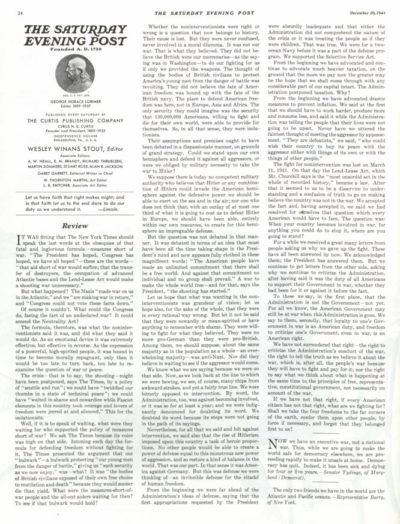75 Years Ago This Week: Defending The Right to Criticize in Times of Crisis
While the Post fully supported America’s war efforts after Pearl Harbor, it reserved the right to be critical of the administration.
Popular support for the war was very strong in December of 1941, and few Americans were publicly opposing it. But the Post had published several editorials that attacked how the Roosevelt administration was managing war finances and information about the conflict.
Because of this criticism, several readers were asking what gave the Post any right “to criticize the Administration, after having said it was the duty of all Americans to support their Government in war, whether they had been for it or against it before the fact.” The Post responded:
“To these we say, in the first place, that the Administration is not the Government—not yet. For all we know, the American Government may still be at war when this Administration is gone. We say to them, secondly, that loyalty to one’s Government in war is an American duty, and freedom to criticize one’s Government, even in war, is an American right.
“We have not surrendered that right—the right to criticize the Administration’s conduct of the war, the right to tell the truth as we believe it about the war, which is, after all, the people’s war because they will have to fight and pay for it; nor the right to say what we think about what is happening at the same time to the principles of free, representative, constitutional government, not necessarily on account of the war.
“If we have not that right, if every American citizen has not that right, what are we fighting for?”
The editorial ends with an admonishment that if we planned to confer FDR’s four freedoms upon other nations, we shouldn’t forget that they first belonged to us.
